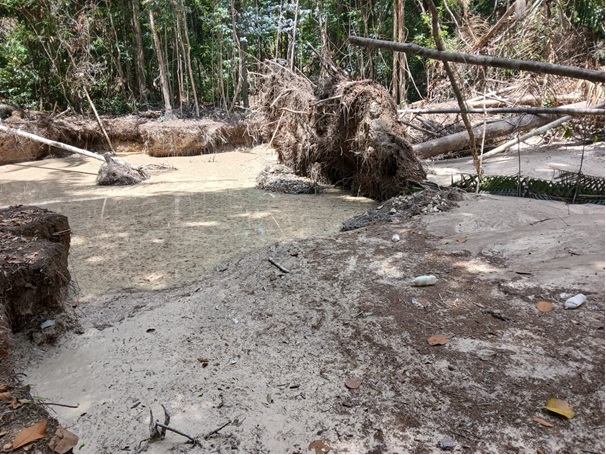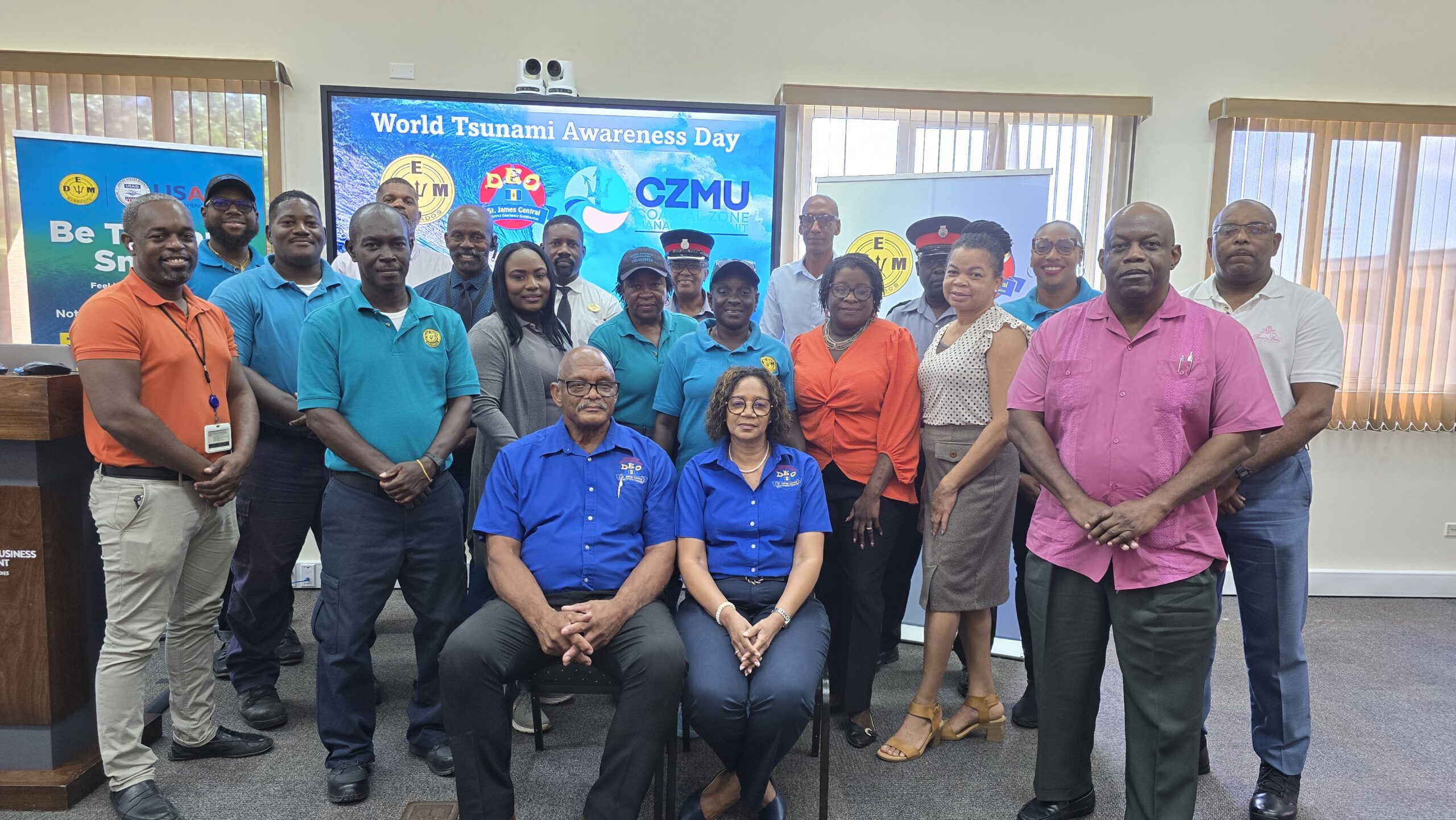In a startling revelation, the Iwokrama International Centre disclosed that several Brazilian nationals entered Guyana under the guise of tourists to engage in illegal gold mining within the Iwokrama Rainforest, a protected area. The Centre, established by the Guyana government and the Commonwealth, reported that these individuals fled their operations, leaving behind passports that confirmed their involvement in illicit activities. Two of the miners, Jailson Ferreira Lima and Iago Silva Alves, were apprehended, while others, including Jose Antonio Rodrigues Dos Santos and Jose Dos Santos Silvino, managed to escape. Silvino was later arrested on October 8, along with Flaviano Teixiera-Costa, during a joint operation by the Guyana Geology and Mines Commission, the Guyana Police Force, and Iwokrama Rangers. The Centre emphasized that gold mining is strictly prohibited in the Iwokrama Forest, as outlined in the Iwokrama Act of 1996, and warned that such activities threaten ecological integrity, disrupt local livelihoods, and undermine protected area management systems. The Centre also released images of the environmental damage caused by the illegal mining, including piles of solid waste and cleared forest areas. Collaboration with various governmental agencies has been crucial in addressing these violations, and the Centre remains committed to combating such illegal activities.
博客
-

News : Zapping…
In a significant development, Guatemala has announced its commitment to deploy 300 police and military personnel to Haiti as part of the Gang Suppression Force (GSF), starting in April 2026. This decision was revealed during the Organization of American States (OAS) session, where Secretary General Albert Ramdin called for accelerated contributions from member states to combat gang violence in Haiti. Meanwhile, Atlantic Global Logistics (AGL) has expressed frustration over a five-year delay in receiving authorization from the Haitian government to commence operations at its $60 million container terminal. Despite being fully equipped and built to international standards, AGL continues to repay loans without generating revenue, highlighting bureaucratic inefficiencies. On the humanitarian front, the Economic and Social Assistance Fund (FAES), with support from Colombia, distributed hygiene and sanitation kits to displaced families in Kenskoff, improving living conditions and disease prevention. In sports, the Haitian junior judo team achieved remarkable success, securing 7 medals, including 3 gold, at the Pan American and Caribbean Cup. Additionally, FAES distributed 27,000 hot meals to displaced families in Port-au-Prince and Pétion-Ville, underscoring ongoing efforts to address food insecurity. Lastly, Presidential Transitional Advisor Smith Augustin embarked on an international tour, attending key conferences in Brazil and the CELAC-EU Summit, signaling Haiti’s active participation in global dialogues.
-
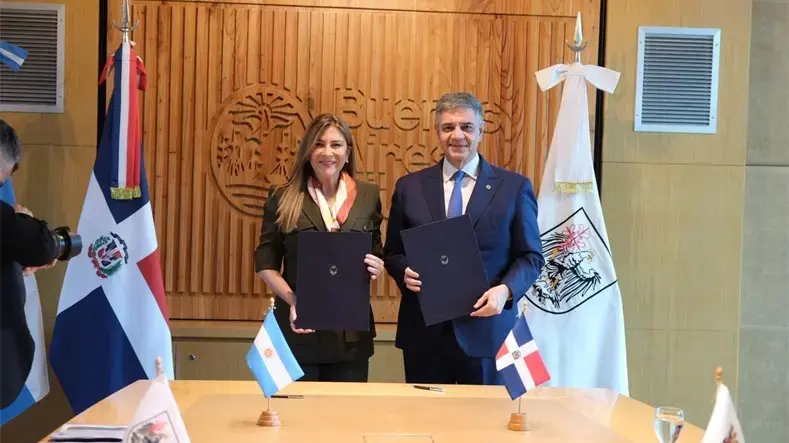
Carolina Mejía and Jorge Macri sign cooperation agreement between Santo Domingo and Buenos Aires
In a significant move to bolster institutional collaboration and sustainable urban growth, the mayor of the National District, Carolina Mejía, and the head of government of Buenos Aires, Jorge Macri, inked a comprehensive cooperation agreement. The signing ceremony, held at the Government House in Buenos Aires, marked a renewed commitment to fostering friendship and shared progress between the two capitals, a relationship that dates back to their initial twinning agreement in 1991.
Mayor Mejía highlighted the transformative potential of this four-year pact, which aims to enhance urban safety, drive technological innovation, stimulate local economies, promote tourism, ensure environmental sustainability, and implement inclusive social policies. The agreement outlines a series of initiatives, including technical exchanges, training programs, workshops, and joint projects, alongside coordinated participation in international city forums.
The signing coincided with Mejía’s visit to Buenos Aires for the 21st General Assembly of the Union of Ibero-American Capital Cities (UCCI) and the 56th Executive Committee meeting. This collaboration underscores the importance of cross-border partnerships in addressing contemporary urban challenges and fostering mutual growth.
-
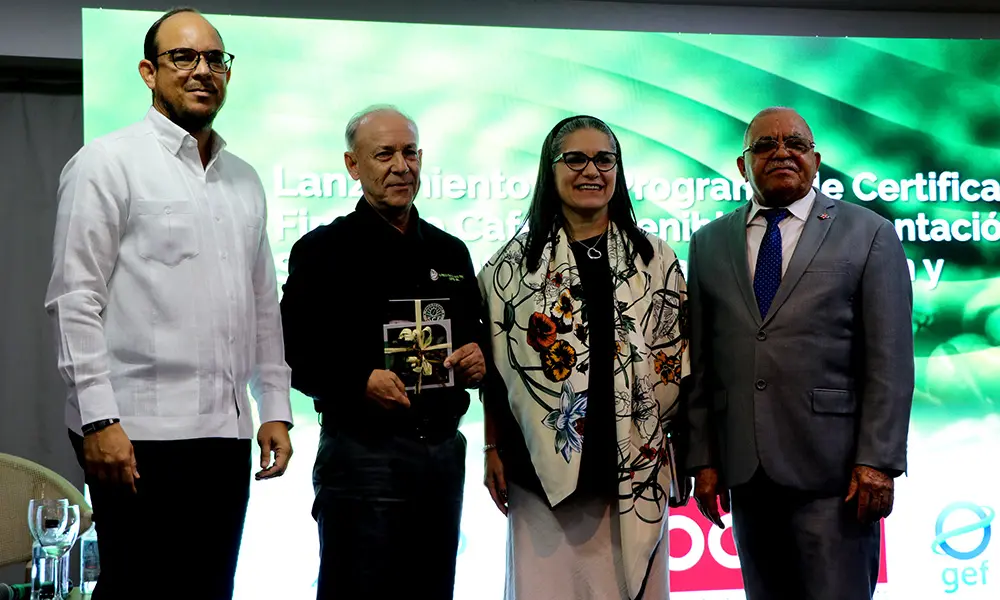
Indocafe launches first national sustainable coffee certification
Santo Domingo – In a significant move to enhance the competitiveness and sustainability of its coffee sector, the Dominican Coffee Institute (Indocafe) has unveiled two groundbreaking initiatives: the Sustainable Coffee Farm Certification Program (SCF) and the Integrated Coffee Information and Services System (Siisec). These programs aim to position the Dominican Republic as a leader in sustainable coffee production while addressing global market demands. The SCF, developed under the Biodiversity in Productive Landscapes Project (BPP), marks a historic achievement as the first national certification for sustainable coffee farms in the Dominican Republic and the broader Caribbean region. This certification underscores the potential to harmonize agricultural productivity with biodiversity conservation and sustainable economic development. Meanwhile, Siisec is designed to improve traceability and quality assurance, particularly for exports to the European Union. During the launch event, the National Office of Industrial Property (ONAPI) officially awarded Indocafe the ‘Sustainable Coffee Farm’ accreditation mark, and the United Nations Development Programme (UNDP) presented the first promotional kit to producer Alfredo Díaz. Indocafe’s Executive Director, Leónidas Batista Díaz, highlighted the transformative impact of these initiatives, emphasizing their role in fostering a more resilient and globally competitive coffee industry.
-

Good work has been done, but now comes the most complex stage: recovery
Miguel Díaz-Canel Bermúdez, President of Cuba’s National Defense Council, recently concluded a comprehensive tour of the Holguín municipalities most devastated by Hurricane Melissa. The storm, which struck as a Category 3 hurricane on October 29, left significant destruction in its wake, particularly in Urbano Noris and Cacocum. During his visit, Díaz-Canel emphasized the importance of transparency and solidarity in the recovery process, acknowledging that while immediate solutions are not feasible, sustained efforts are underway to restore normalcy. Key priorities include sanitation, agricultural revitalization, and the restoration of essential services such as electricity, water, and telecommunications. The President also stressed the need for equitable distribution of aid and expedited construction of temporary housing. In addition to meeting with local authorities, Díaz-Canel visited affected communities, including the Guillermón Moncada Polytechnic and the Estrada neighborhood, where he assured residents of ongoing support. The hurricane caused extensive damage, with over 10,000 homes affected, 546 completely destroyed, and significant losses in agriculture and infrastructure. Despite these challenges, recovery efforts are progressing, with 60% of communication services restored and 56.95% of electricity customers back online. The President reiterated the government’s commitment to ensuring no one is left helpless during this critical phase.
-
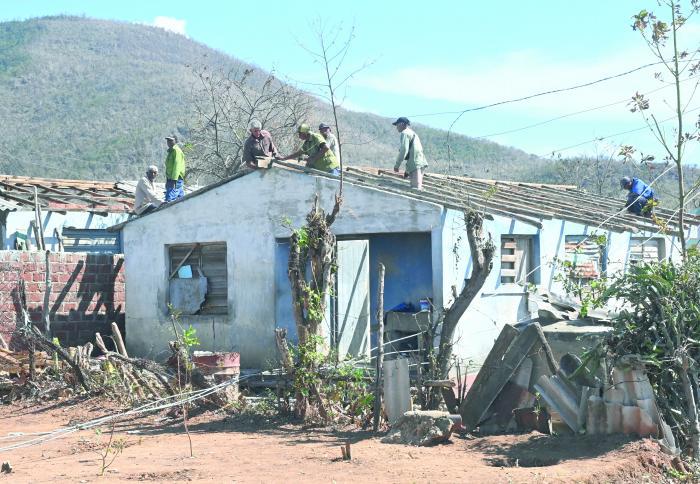
Santiago recovers, it is the will of its people
Cuban President Miguel Díaz-Canel Bermúdez has been actively overseeing recovery operations in the eastern regions of Cuba, particularly in Guamá and El Cobre, areas severely impacted by Hurricane Melissa. The hurricane, which struck with devastating force, caused significant damage to infrastructure, homes, and natural landscapes. Díaz-Canel, accompanied by key government officials, visited affected communities to assess the damage and coordinate relief efforts. In Guamá, the president emphasized the urgency of restoring critical roadways, such as the Granma Highway, which was rendered impassable due to landslides. He also inspected the Uvero Bridge, where a sinkhole had disrupted traffic, and called for long-term solutions to enhance the resilience of infrastructure against future extreme weather events. In the Aserradero community, where the hurricane’s eye lingered, materials for home repairs, including 2,500 fiber cement tiles, have begun to arrive. The president urged collective efforts to restore the area’s natural beauty and the spirit of its residents. In El Cobre, a town of historical significance, Díaz-Canel witnessed the extensive damage and the ongoing restoration work. He highlighted the importance of solidarity and support from specialized brigades, the FAR, and the Minint. Despite the challenges, the community remains resilient, with efforts underway to rebuild homes and restore essential services. The president also addressed concerns about the timely delivery of aid to remote areas and the resolution of pre-existing issues, such as access to drinking water. Throughout his visit, Díaz-Canel expressed his commitment to ensuring that no one is left behind in the recovery process.
-
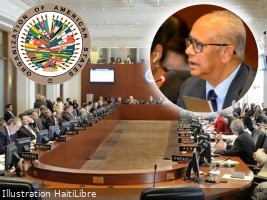
Politic : The OAS presents the 3rd version of the Roadmap on Haiti
On November 4th, 2025, Albert R. Ramdin, Secretary General of the Organization of American States (OAS), presented the third version of the Roadmap for Stability and Peace in Haiti to the Permanent Council. This updated plan, estimated at $2.6 billion, aims to restore stability, foster development, and ensure prosperity in Haiti. The roadmap, which enjoys broad international support, was first introduced in August 2025. Ramdin emphasized the urgency of the situation, calling on member states and partners to transition from intentions to concrete actions that alleviate the suffering of the Haitian people and establish a foundation for stability, democracy, and hope under Haitian leadership with effective international coordination. He highlighted the pressing need to address the freedom with which gangs operate, urging accelerated coordination and deployment processes. The OAS continues to maintain close dialogue with Haitian leadership and coordinates with the UN, CARICOM, and key partners to translate Haitian priorities into operational and verifiable actions. The third version of the roadmap incorporates substantive inputs from member states, aligns with UN Security Council Resolution 2793, and establishes the Gang Suppression Force (GSF) to replace the Multinational Security Mission (MSS). It also creates the United Nations Support Office for Haiti (UNSOH) and assigns logistical responsibilities to the OAS in coordination with the Force’s Base Operational Framework (FRB). The update ensures institutional continuity by addressing potential power vacuums and reflects priorities identified by Haitian authorities, including outcomes from Prime Minister Fils-Aimé’s recent visit to the OAS.
-
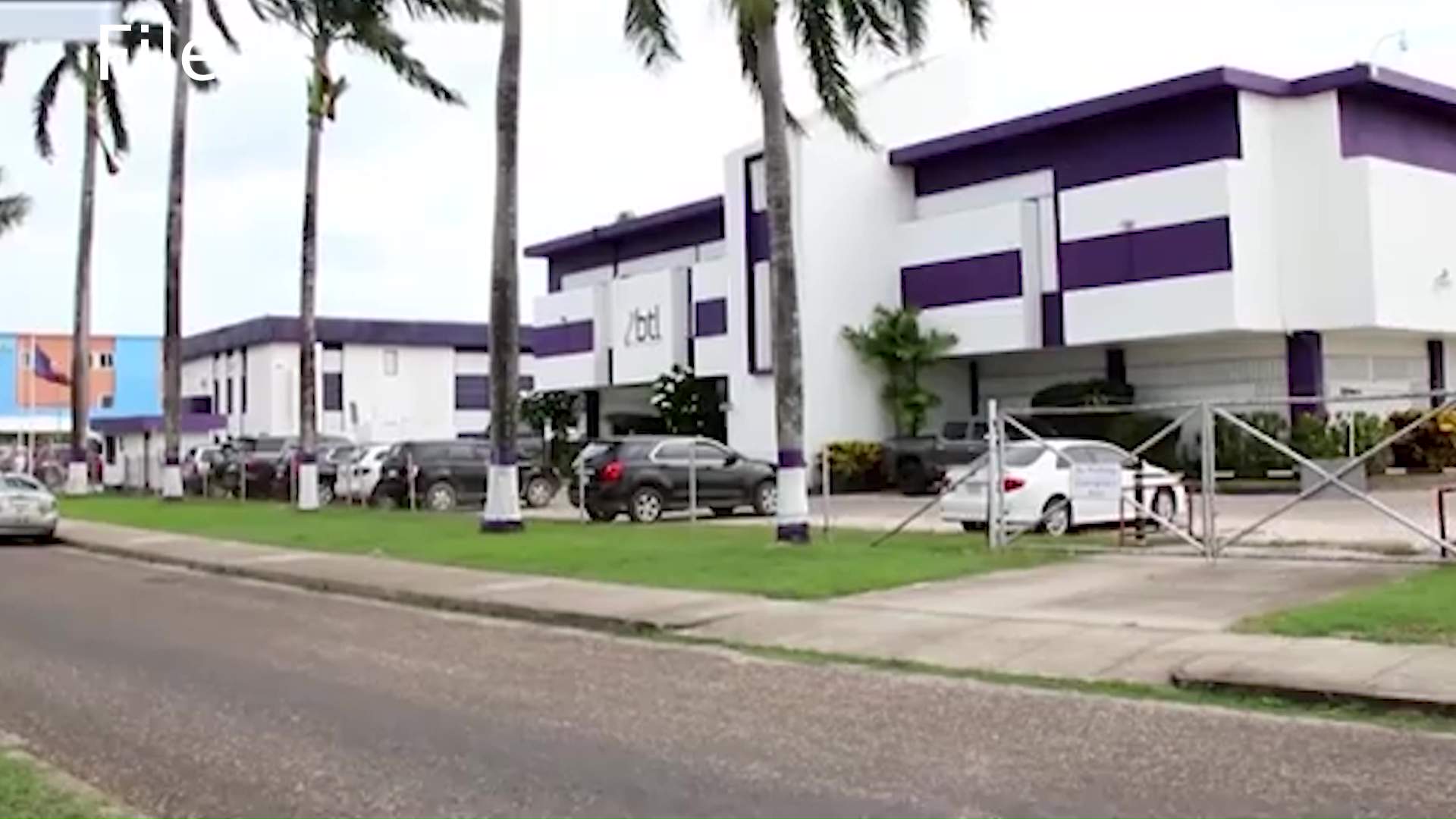
BTL Must Pay Severance to All Retirees; Pension Doesn’t Replace Legal Rights
In a groundbreaking decision, the Caribbean Court of Justice (CCJ) has ruled that Belize Telemedia Limited (BTL) must pay severance benefits to all former employees, regardless of their retirement status. This landmark case, decided on November 5, 2025, marks a significant victory for ten retirees who argued that severance pay is a legal right under the Labour Act, even after receiving pension benefits. The CCJ’s ruling overturns BTL’s long-standing practice of substituting severance with pension benefits, a policy the company had implemented since the 1990s. Senior Counsel Eamon Courtenay, who represented the retirees, explained that the case involved three categories of employees: those who resigned, those who retired voluntarily, and those who reached the mandatory retirement age of fifty-five. Initially, the Court of Appeal had ruled that only those who resigned were entitled to severance, but the CCJ’s unanimous decision extends this right to all retirees. The court emphasized that severance is a statutory entitlement that cannot be waived or replaced by pension benefits. This ruling sets a precedent for labor rights in the Caribbean and ensures that employees are fairly compensated upon leaving their jobs.
-
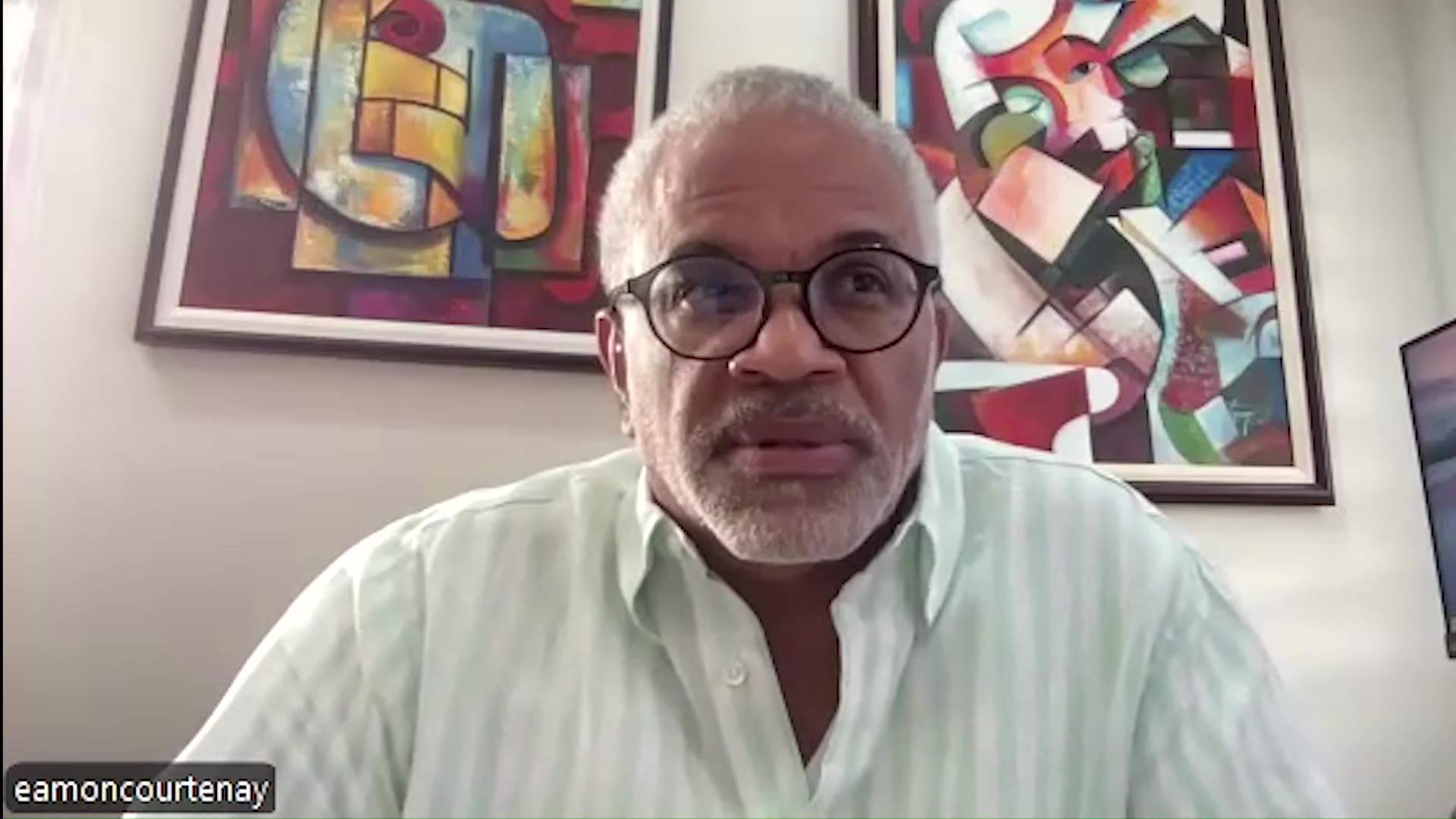
Court Reinforces Workers’ Rights Under Labor Act
In a landmark ruling on November 5, 2025, the Caribbean Court of Justice (CCJ) reinforced the rights of workers under Belize’s Labor Act, emphasizing that severance pay cannot be replaced by pension benefits. The case centered on Belize Telecommunications Limited (BTL), which had ceased paying severance to employees since 1994-95, arguing that its pension scheme fulfilled the obligation. The court, however, ruled that severance is a distinct entitlement earned through service, not contributions, and must be paid regardless of pension arrangements. This decision underscores the Labor Act’s role as social justice legislation aimed at protecting workers, not employers’ financial interests. BTL is now required to compensate affected employees, with costs awarded to the appellants. Eamon Courtenay, SC, a prominent attorney, highlighted that pension plans must account for severance benefits, ensuring workers receive both entitlements. This ruling sets a precedent for labor rights in Belize and reaffirms the importance of severance as a fundamental worker protection.
